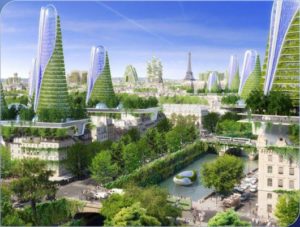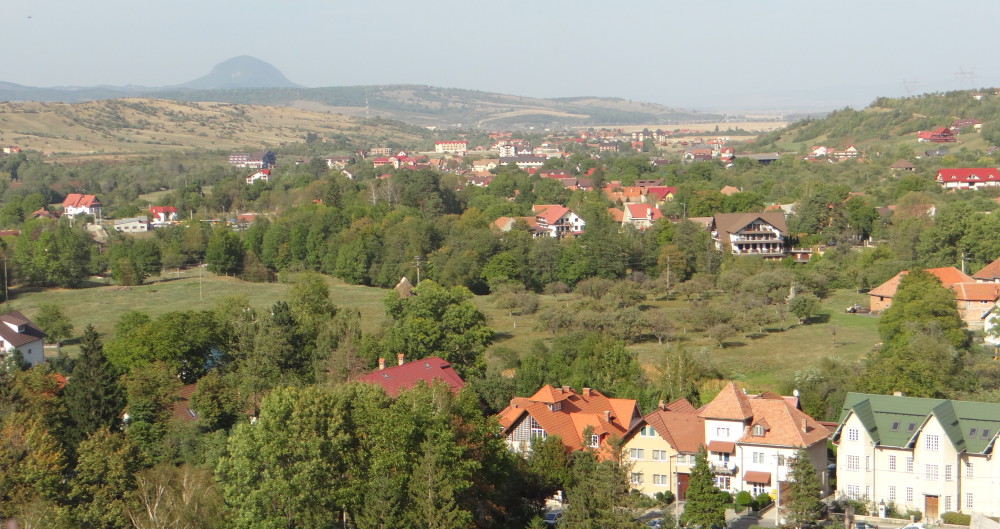
The Startup Societies Summit Puerto Rico is taking place at Georgetown University Law Center in Washington, D.C. on January 19-20, 2018. This summit will “discuss solutions for Puerto Rico and raise funds for the Foundation for Puerto Rico, a non-profit dedicated to rebuilding the island.
“Our goal is to make self-sustaining economic zones in Puerto Rico focused on 21st Century solutions, putting Puerto Rico at the forefront of the green-tech revolution. We aim to not only raise funds for the rebuilding of Puerto Rico, but to set the stage for state of the art infrastructure and an entrepreneur-friendly environment. With some help, Puerto Rico can foster startup cities to rival Silicon Valley.”
Advertised attendees are investors, green tech entrepreneurs, non-governmental organizations (NGOs), policy makers, media leaders, policy experts, Georgetown students, SEZ developers, and “block chain” experts.
Block chain experts are crypto currency developers. https://blockchain.info/
Special Economic Zones (SEZ) are located within a country’s national borders and their business and trade laws differ from the rest of the country. The explanation is that such zones include “increased trade, increased investment, job creation, and effective administration.” It is creating a mini-country within a country, independent of the sovereign laws of the land.
Joe McKinney wrote a blog on December 20, 2017, Rebuilding Puerto Rico, Tragedy Strikes, which described the financial and economic situation of Puerto Rico following the disastrous Hurricane Maria from September 2017, which had caused property damage estimated at over $100 billion and tremendous loss of life during and after the hurricane.
According to McKinney, Puerto Rico was destitute prior to the hurricane, due to its sovereign debt of $70 billion and unfunded pension liabilities exceeding $50 billion. The U.S. federal government’s $94.4 billion “care package” offset the hurricane damage. Housing assistance received $31 billion, $17.7 billion for the power grid, and $14.9 billion for healthcare. https://startupsocieties.com/ssf-blog
Acknowledging Puerto Rico’s “government lack of fiscal conservatism,” McKinney wrote how a $300 million contract with a Montana power company to restore the power grid fell through. He admits that “governance” is the main issue. “When rebuilding the economy, the problems of governance which originally caused it must be addressed.”
The Startup Societies Foundation (SSF) believes that “a green infrastructure must be built in Puerto Rico and the population must be made wealthier in knowledge, skill, and resources.” Humanitarian aid and financial help coming from U.S. taxpayers is expected.
Proposing to decentralize Puerto Rico, SSF suggests using special economic zones, eco-conscious societies, sea steading, and other means to control the island.
“Sea steading is a concept of creating permanent dwellings at sea, called sea steads, outside of the territory claimed by a government.” Proposed sea steads are modified cruising vessels, refitted oil platforms, decommissioned anti-aircraft platforms, and custom-built floating islands. https://www.seasteading.org/
“Eco-conscious societies” are environmentally friendly, nature-friendly, and green societies where sustainable development (SD), the lynch-pin of United Nations Agenda 2030, governs all decisions about human activity, services, laws, policies, and business activity, with reduced, minimal, or no harm upon ecosystems or the environment.
The immediate assessed needs for Puerto Rico were as follows:
1. Electrical energy networks by turning to renewable energy sources.
2. Infrastructure that will resist natural disasters.
3. A stable, attractive business environment.
4. Fiscal freedom from accrued debts, a.k.a. debt forgiveness.
According to SSF, “100 % green energy [possible by 2027] in the form of biomass, wave energy, and solar power remain untapped.” Immediate efforts to provide “communication should come by deploying temporary telecommunication balloons to establish basic telecom services such SMS and web browsing.” Puerto Rico could become a poster child of a “startup society.”
Through the powerful decentralization proposed by SSF, new property rights, new free markets, and new trade, “Startup societies will essentially be competing for patronage from citizens worldwide. What will happen in the long term in the startup societies’ paradigm is that individual societies will specialize in their comparatively advantageous fields.” But countries are already using comparative advantage in international trade. www.startupsocieites.com/ssf-blog/2017/11/18/the-dutch-disease-the-resource-curse-and-other-dirty-economics-words
On the list of SSF problems are urban sprawl and farms. “Urban ecosystems are parasitic upon nearby nature by definition and are thus a large detriment to the environment at large. Megacities, megalopolies, and their sprawling suburbs and farms are a problem in the transition to startup societies.”
SSF proposes the use of CO2-binding concrete, artificial photosynthesis, and vertical integration such as the laudable architectural high rises in Hong Kong, “using height to create solutions for societies.” “Vertical farming, padding external building walls in specially engineered pollutant-recycling moss, the third dimension is an oft-neglected aspect of environmental sustainability.”
Eco-villages and eco-tech startups will “reformat the current settlements large and small” by a “handful of strong-willed people who may shake people out of the stupor of modern urban life.”
“The establishing of smaller, more localized jurisdictions will help speed up the competitive pressure mechanisms that will make citizen begin to convert their current structures into something resembling nature.” https://startupsocieties.com/ssf-blog/2017/12/11/environmental-impacts-in-the-startup-societies-world-what-can-and-should-be-done
According to SSF, startup societies may locate in disputed border territories, the wide-open sea, and even Antarctica. The chosen land must respect jurisdiction and follow U.N.’s Law of the Sea or the Antarctica Treaty. Then a status for the startup society must be created within the current legal framework of the current authority via sanctuary city or special economic zone. The current authority may be local, federal, individual (president), or a group (Chamber of Commerce). Lobbying and political maneuvering, persuasion through legal or fiscal means, will eventually help found a startup society. “The essence of government is fluid. It can be remade and reshaped into an infinitely more complex but also streamlined version of itself.” https://www.startupsocieties.com/ssf-blog/2017/12/1/how-you-yes-you-can-build-a-startup-society
Quoting data from the United Nations, the SSF blog mentions that half of the richest 10 countries in the world (GDP per capita) are city states such as Liechtenstein, Monaco, and Luxemburg and are easier to manage. The truth is that these city states produce absolutely nothing of economic value other than as beautiful domiciles for the rich, the famous, and the titled. https://www.startupsocieties.com/ssf-blog/2017/12/4/on-top-of-the-world-explaining-the-statistical-success-of-modern-city-states
Startup Cities is eyeing Terra Australis, Antarctica, the southernmost continent, with 5.5 million square miles, driest and coldest, populated by 4,000 people in the summer and 1,000 in winter, appealing to the frontier spirit of Americans to establish the SSF vision of tomorrow. The only problem is, the dreamers of IT, financial technology, and other visionaries, do not have what it takes to be a frontier man or woman.
According to SSF, Chile, U.K., New Zealand, Australia, France, and Norway use certain areas of Antarctica for scientific research but cannot exercise territorial sovereignty over the borders per Antarctic Treaty System of the 1960s.
Russia and the U.S. have a “Deep Freeze” unclaimed area between New Zealand and Chile. Abandoned but maintained stations in this “unclaimed area” are utilized in the summer months. Startup Societies might use untapped opportunity to colonize this area. There is plenty of “powerful winds, extensive sunlight, and possible mineral deposits [which] may make energy a trifling matter, with the right technology.”
SSF is convinced that Startup Societies are the “future” through “competitive governance, secession, sea steading, decentralization, and e-government.”
Competitive governance is “decentralized experimentation driven by entrepreneurs and mobility of people and ideas, new structures that solve protracted social challenges peacefully.”
The author, Aleksa Burmazovic, extolls the virtues of frontier exploration – “barren land out there ripe for people to turn into beautiful gardens of human achievement,” https://www.startupsocieties.com/ssf-blog/2017/11/16/terra-australis-is-antarctica-the-next-frontier
I was thinking about all the deserts on the planet with green oases and civilizations that had died years ago, and all the mirages generated from too much heat and hot air. I see Startup Societies as the techies’ newest scheme of U.N.’s Sustainable Development, Green Growth, Smart Growth re-engineering of our society’s future.
ILEANA JOHNSON
American By Choice
